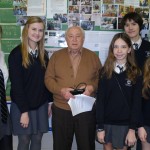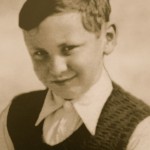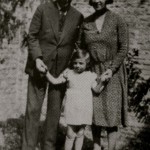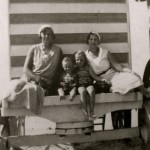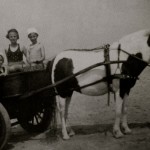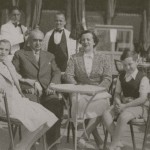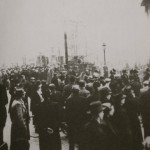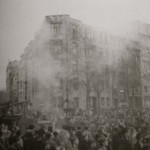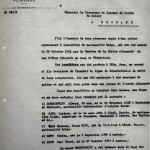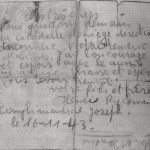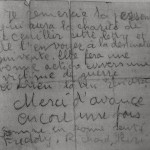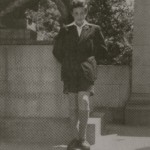Paul-Henri Rips was born on October 23, 1929 in Antwerp, Belgium. He lived with his father Isadore, mother Faja and sister Sina. Paul described his years before the war as his “golden childhood”. There were mutterings of what was to come but his childhood was pleasant. On May 10th 1940 Belgium was invaded by Germany. Paul was woken up by anti-aircraft guns. Paul’s first thought was that there would be no school. Paul and his family, along with thousands of others of refugees fled into France. They reached the River Somme where German soldiers were stationed. These soldiers were young and kind. They told them to go home and that the war was over for them. New regulations and rules were passed for Jews. A curfew was enforced and Jews were forbidden to walk on sidewalks and had to wear a yellow star. From there, Paul and his family experienced the escalating severity of Nazi policies, as they ended up in jail, in the Malines and Pithviers camps, and ultimately were fortunate enough to go into hiding, where they awaited the end of the war.
Paul-Henri Rips came to us courtesy of the Azrieli Foundation, who published his memoirs a few years ago. He was interviewed for this project by Sydney Swartz, Lili Mancini, Sarah Mainprize, Lara Franklin, and Tristan Lim.
Videos
Click next video below to keep watching
- 1. Paul Henri Rips - Introduction
- 2. School Life in Belgium
- 3. Childhood Memories
- 4. Awareness of the War; The Kindertransport
- 5. Major Prewar Events
- 6. War from a Child's Perspective
- 7. The Invasion, Part One
- 8. The Invasion, Part Two
- 9. On the Run
- 10. Turned back at the Somme
- 11. The German Army
- 12. Refugees
- 13. The Burning of the Synagogue; The First Prison
- 14. The Prison Infirmary
- 15. Life in Pithiviers
- 16. School in Pithiviers; Accusations and Hiding
- 17. Malines
- 18. Arriving at the Camp
- 19. Malines- The Selection
- 20. His Father's Advice; Liege to Malines
- 21. Les Conditions dans les Camps; La Nourriture
- 22. La Famille; L'Incertitude
- 23. The Letter to his Mother
- 24. Liberation; Stalingrad and Paris
- 25. After Liberation
- 26. Life after the War; Holocaust Education
